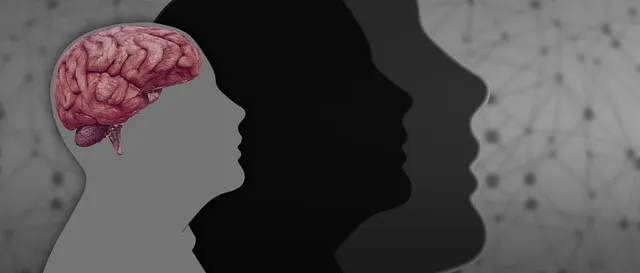The Centennial Kaiser Permanente Mental Health Access Center is dedicated to crisis intervention and holistic support. They offer immediate assistance, teaching coping mechanisms based on Mind Over Matter principles, and fostering resilience through structured techniques. Their Community Outreach Program encourages open conversations about mental wellness, promoting early intervention. The center provides tailored interventions like cognitive-behavioral therapy and mindfulness practices, along with post-crisis support systems, including self-awareness exercises and public awareness campaigns to destigmatize mental health issues. This comprehensive approach ensures lasting care for individuals in crisis, empowering them on their journey towards improved well-being.
“In times of crisis, effective intervention strategies are pivotal in ensuring positive outcomes. This article guides you through a comprehensive approach to managing acute situations, drawing insights from the Centennial Kaiser Permanente Mental Health Access Center—a renowned model for care. We explore key strategies, from initial assessment to post-crisis support, offering valuable insights for professionals. Discover how implementing these tactics can enhance mental health services and foster resilient communities, with a special focus on the innovative practices at the Centennial Kaiser Permanente center.”
- Understanding Crisis Intervention: A Brief Overview
- The Centennial Kaiser Permanente Mental Health Access Center: A Model for Care
- Key Strategies for Effective Crisis Intervention
- Implementing and Supporting Post-Crisis Support Systems
Understanding Crisis Intervention: A Brief Overview

Crisis intervention is a critical component of mental health support, designed to provide immediate assistance during moments of severe distress or upheaval. At the Centennial Kaiser Permanente Mental Health Access Center, we recognize that understanding and effectively responding to crises are essential for fostering resilience among individuals and communities. This strategy focuses on stabilizing the individual, ensuring their safety, and helping them cope with overwhelming emotions or situations.
The process involves a set of structured techniques aimed at promoting positive outcomes. By integrating Mind Over Matter principles, our center equips individuals with powerful tools to navigate crises. These include enhancing self-awareness, encouraging emotional regulation skills, and building confidence in managing challenges. Resilience Building is a key outcome, enabling people to bounce back from difficult experiences and emerge stronger, thereby improving their overall well-being.
The Centennial Kaiser Permanente Mental Health Access Center: A Model for Care

The Centennial Kaiser Permanente Mental Health Access Center stands as a beacon of hope and innovative care for individuals seeking mental health support. This center has been meticulously designed to address the growing need for accessible, comprehensive, and compassionate mental healthcare services. By integrating various therapeutic approaches within a collaborative framework, it offers a holistic model that caters to diverse patient needs.
The center’s success lies in its Community Outreach Program Implementation, which aims to bridge the gap between care and community. Through targeted initiatives, they foster open conversations about mental wellness, promoting early intervention and preventing emotional healing processes from becoming protracted struggles. The Centennial Kaiser Permanente Mental Health Access Center’s approach ensures that individuals receive timely support, empowering them on their journey towards improved mental health and overall well-being.
Key Strategies for Effective Crisis Intervention

In the face of a crisis, effective intervention strategies are vital to providing immediate and lasting support. The Centennial Kaiser Permanente Mental Health Access Center emphasizes a holistic approach, focusing on both the individual’s present needs and long-term mental wellness. One key strategy is active listening, where professionals foster an environment of non-judgmental understanding, encouraging individuals to express their feelings freely. This technique boosts confidence and encourages open communication, which is crucial for navigating challenging situations.
Additionally, the center promotes tailored interventions that address unique circumstances. This personalized approach includes various methods such as cognitive-behavioral therapy techniques to reframe negative thought patterns, mindfulness practices to enhance emotional regulation, and stress management strategies. By incorporating these evidence-based techniques, the center aims to empower individuals to overcome crises and reduce the impact of mental illness stigma through education and understanding.
Implementing and Supporting Post-Crisis Support Systems

After an initial crisis intervention, establishing robust post-crisis support systems is pivotal for long-term recovery and resilience. The Centennial Kaiser Permanente Mental Health Access Center serves as a beacon, offering tailored programs to cater to diverse needs. One such initiative involves facilitating Self-Awareness Exercises designed to help individuals process their experiences and emotions, fostering Inner Strength Development. These exercises empower people to navigate future challenges with enhanced coping mechanisms.
Additionally, the center actively engages in Public Awareness Campaigns Development, aiming to destigmatize mental health issues and encourage early intervention. By combining these efforts, the access center not only provides immediate relief but also contributes to building a supportive community that prioritizes mental well-being. This comprehensive approach ensures individuals affected by crises receive holistic care, fostering resilience and promoting sustainable recovery.
In light of the above discussions, it’s clear that crisis intervention strategies play a pivotal role in mental health care. The Centennial Kaiser Permanente Mental Health Access Center serves as an exemplary model, demonstrating how comprehensive and accessible services can significantly improve outcomes. By integrating effective key strategies and implementing robust post-crisis support systems, healthcare providers can ensure that individuals experiencing crises receive the necessary care and guidance. This approach not only enhances recovery but also fosters a more resilient and supportive community overall.






